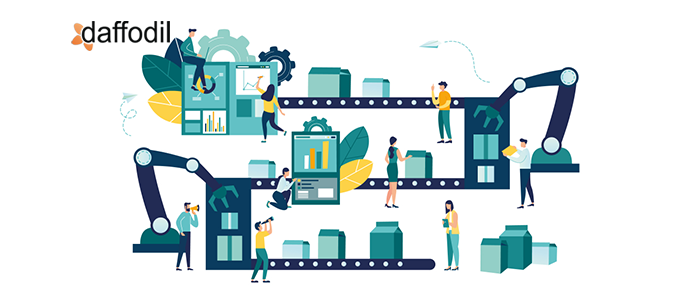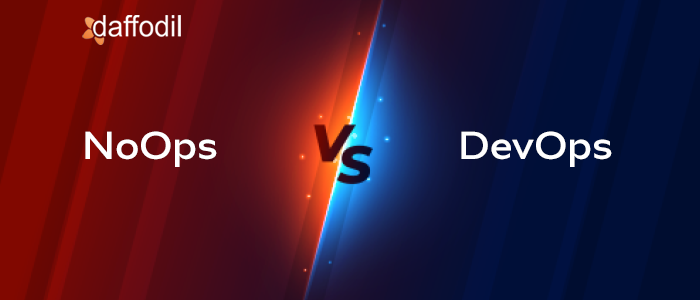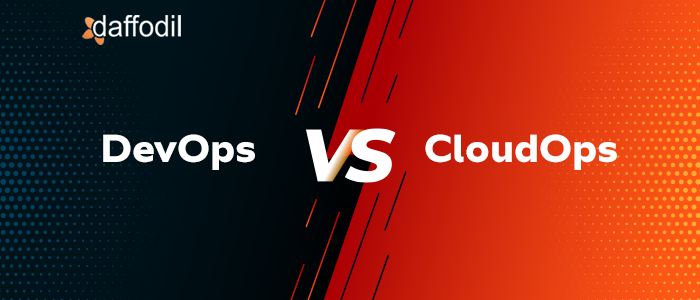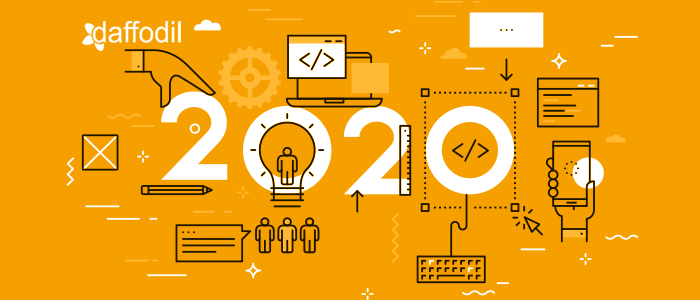To understand event-driven automation we first need to define what is an event? As per the Information Technology Infrastructure Library (ITIL), an event is a change of state that holds importance for the management of an IT service or other Configuration Item (CI).
What is event-driven automation and why do you need it?
By Devi Singh on Jan 13, 2021 4:55:06 PM
DevOps vs. NoOps: Key Points of Differentiation
By Nora Winkens on Sep 16, 2020 4:21:16 PM
The concept of DevOps is now popular owing to its importance in a cloud-based environment that involves automation for the testing and deployment of software builds. When development and operations teams are not able to communicate well with
What is NoOps and Why it is the Future of the IT Industry
By Devi Singh on Sep 15, 2020 5:09:39 PM
The current trend of the IT industry is based on the principle of automation. This isn’t just hype because the marvelous effects of automating various tasks are widely known by now. Planning out the budget effectively and reducing maintenance costs are some of the deemed automation outcomes.
DevOps vs. CloudOps: What's the Difference?
By Nora Winkens on Aug 25, 2020 2:29:00 PM
IT world is full of various terminologies that are often related to each other. When it comes to digital transformation, DevOps and CloudOps are often touted as two essential ingredients to get much needed competitive advantage and offer differentiated services.
5 Evolving Trends in Software Development in 2020
By Archna Oberoi on Apr 21, 2020 3:18:00 PM
This year has marked a downturn for various industries. However, there are some that are actually enabling many to sail through the tough time. The software development industry is one of them.
How to Ensure Business Continuity Amid COVID-19 Crisis?
By Archna Oberoi on Apr 8, 2020 7:30:00 PM
The world health pandemic, COVID-19 has incapacitated businesses by impacting their productivity as well as overall economic growth. It has immobilized their employees, making them work remotely. COVID-19 has also presented the greatest career challenge to the CIOs, i.e. ensuring business continuity by taking care of data availability, employee engagement, and enabling business operations in the time of crisis.
Top 10 Agile and DevOps Thought Leaders to Follow
By Archna Oberoi on Dec 25, 2019 5:47:25 PM
The market demand for custom application development has grown five times faster than the internal IT organization’s capacity to deliver them. There is a continuous struggle to stay proactive against competitive pressure, resulting in a development cycle that is more tactical than strategic.
Best Practices for Cloud Cost Optimization
By Archna Oberoi on Nov 27, 2019 5:19:14 PM
Cloud infrastructure is one of the sought after approaches for managing CapEx and OpEx costs for businesses at the initial stage. But, as the business expands, the cloud services inflate in number as well. More the services, the more would be the cost to the provider. Amidst this, how can companies ensure that their cloud infrastructure proves cost-effective along with performance-oriented? The answer is by optimizing the cloud infrastructure for cost.
3 Critical Approaches To Software Modernization
By Archna Oberoi on Nov 26, 2019 9:26:00 AM
When legacy systems hold back the business growth, IT teams race to modernize the existing solutions, thereby creating new business value out of them. The process involves technical or functional improvements, which may range anywhere between rewriting code, migration to a different platform, changing the architecture, or even replacing the entire system with a newer one.
Site Reliability Engineering (SRE) vs DevOps: What’s the Difference?
By Archna Oberoi on Nov 19, 2019 6:30:00 PM
Software Reliability Engineering and DevOps are two sought after disciplines, trying to maintain a balance between the software engineering and operations team. Since both approaches seem to sort similar problems, there is confusion if they are similar or can be used interchangeably.










